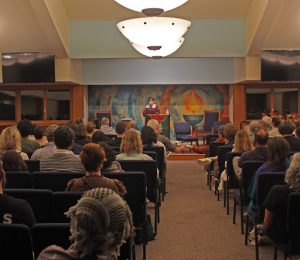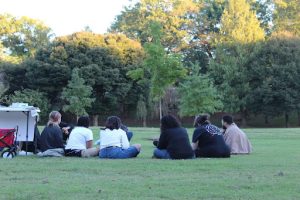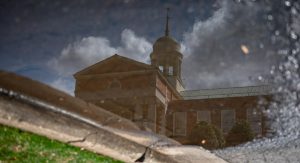COVID-19 cases remain stable in week eight
October 15, 2020
As of Oct. 14, there are only 17 active COVID-19 cases in the Wake Forest community, making the university one of very few colleges in North Carolina still successfully operating with in-person and blended modalities of learning.
With around 3,700 undergraduate students living on campus (including those who signed a lease with the university, even if they are physically off-campus) out of 5,300, the university has had to keep track of COVID-19 from many different angles.
Asymptomatic Sample Testing is one of those methods, with a total of 2,855 tests administered randomly since the first week of September. Out of those 2,855 tests, only 15 have cumulatively been positive.
In regards to the proportion of on-campus students versus off-campus students being randomly sampled for testing, Penny Rue, Vice President for Campus Life, reports that the number of positive cases is actually quite similar between the groups.
“In terms of random testing, the numbers are almost identical,” Rue said.
While off-campus students may not be monitored as carefully as those who live on campus, Rue believes that the Asymptomatic Sample Testing accounts for the off-campus population accurately, and that the low number of positive cases reflects this.
“Roughly a quarter of the sample of our random testing group is off-campus [students], so that is designed to be representative and shows a pretty good view of what’s going on,” Rue said.
Dr. Christopher Ohl is an infectious disease expert at Wake Forest Baptist Health and has been an integral member of Wake Forest’s “Our Way Forward” COVID-19 intiative. While Ohl finds it slightly more challenging to monitor COVID-19 exposure off campus, he is satisfied with the vigilance of the student body.
“The students off-campus have a little more freedom and their social circles seem to be a little more extended, but we have done extra sample testing in off-campus social networks and they’ve been incredibly cooperative with it,” Ohl said.
It is also common among Wake Forest students to independently and privately get tested for COVID-19 at places like Novant Health and CVS, whether they have been exposed or just want to be sure they haven’t unknowingly contracted the virus. This is because Student Health Services (SHS) will only test a student for diagnostic purposes unless they get selected during Asymptomatic Sample Testing, meaning the student has to be suspected to have COVID-19 or has symptoms.
If a student tests positive in one of these independent testing locations, Wake Forest is contacted even if the patient does not tell the school. This is because these locations notify the Forsyth County Department of Public Health, who then inform the university if the positive patient is a student. This is done for contact-tracing purposes, and helps keep Wake Forest’s COVID-19 Dashboard accurate in regards to positive results.
The final way Wake Forest tracks COVID-19 among off-campus students is by using the survey results reported in SneezeSafe. Students who report coming in contact with someone who is positive for COVID-19 will receive a call from SHS who will analyze each situation individually. In some cases, students will have to quarantine. In other cases, students will be encouraged to get tested or to isolate if they are exhibiting COVID-19 symptoms, especially after known exposure.
Contact tracing has been the university’s primary way to keep COVID-19 controlled, and this approach works with Asymptomatic Sample Testing to achieve a wide picture of the campus community.
“It’s not so much how many people you test, it’s more so what you do with the result. Turns out, if you do a certain cohort of Asymptomatic Sample Testing and do it randomly, it gives you an idea of what’s going on underneath it all and the population,” Ohl said.
“Most of our students who are in quarantine are there because of contract tracing. Even students who don’t share results with us will have friends who tell us ‘I’ve been in contact with someone who tested positive”, and then we are in a position to reach out to them,” Rue said.
It can be assessed that information from the Forsyth County Department of Public Health, the positivity rate of the weekly Asymptomatic Random Sampling, and by utilizing contact-tracing strategies by compliant students, have helped Wake Forest to have steady hand on COVID-19, and this is proven by the low numbers on campus right now.
Dr. Ohl also wants students to keep remaining vigilant, especially as Halloween is approaching.
“One of the reasons our cases are going up in the Triad Area is because people are starting to do more stuff indoors … just because something is open, doesn’t mean you should go,” Ohl said.












